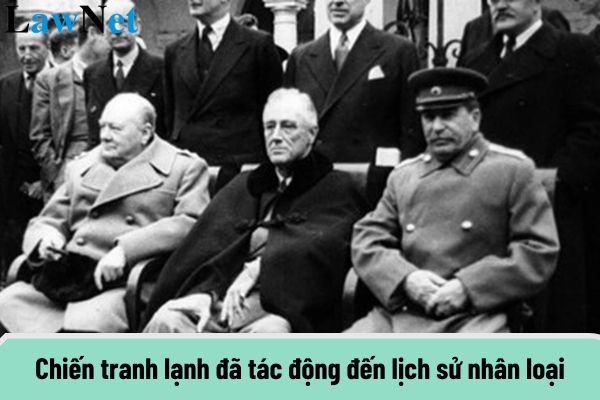What was the most significant impact of the Cold War on human history? How many academic topics does the 12th-grade History curriculum in Vietnam include?
What was the most significant impact of the Cold War on human history?
The Cold War resulted in the world being in a constant state of tension, with the risk of a new world war erupting, while social welfare issues were not adequately addressed. This was the most significant consequence that the Cold War inflicted on human history.
12th-grade students may refer to the following information about the most significant impact of the Cold War on human history:
|
What was the most significant impact of the Cold War on human history? 1. The Division of the World into Two Opposing Blocs |
*Note: The information is for reference only./.

What was the most significant impact of the Cold War on human history? How many academic topics does the 12th-grade History curriculum in Vietnam include? (Image from the Internet)
How many academic topics does the 12th-grade History curriculum in Vietnam include?
Under Section 5 of the General Education Program in History attached to Circular 32/2018/TT-BGDDT, specific regulations on academic topics in the 12th-grade History curriculum are as follows:
Topic 12.1: HISTORY OF RELIGIONS AND BELIEFS IN VIETNAM
Overview of beliefs and religions
Concept of beliefs
Concept of religions
Some beliefs in Vietnam
Ancestral worship and Hung Kings
Worship of Goddesses
Worship of Tutelary Deities
Worship of national heroes
Some religions in Vietnam
Confucianism
Buddhism
Christianity
Taoism
Other religions
Topic 12.2: JAPAN: HISTORICAL PATH FROM 1945 TO PRESENT
Japan after World War II (1945 - 1973)
The period under Allied occupation (1945 - 1952)
- The democratization process
- Economic and social transformations
High economic growth period (1952 - 1973)
- Causes of the "economic miracle"
- Political and social situations
Japan from 1973 to present
The crisis and adjustment period (1973 - 2000)
- Unstable economic developments
- Political and social situations
Japan in the early 21st century
- Reforms and economic recovery process
- Political and social transformations
Lessons of success from Japan's history
- On the human factor
- On the role of the State
- On the organizational and managerial system of production
- On historical and cultural traditions
Topic 12.3: VIETNAM'S INTERNATIONAL INTEGRATION PROCESS
Some concepts
Globalization
...
According to the above regulations, the 12th-grade History curriculum comprises 3 topics:
Topic 12.1: HISTORY OF RELIGIONS AND BELIEFS IN VIETNAM
Topic 12.2: JAPAN: HISTORICAL PATH FROM 1945 TO PRESENT
Topic 12.3: VIETNAM'S INTERNATIONAL INTEGRATION PROCESS
What are the specific objectives of assessing 12th-grade History in Vietnam?
Under Section 7 of the General Education Program in History attached to Circular 32/2018/TT-BGDDT, specific objectives of assessing 12th-grade History in Vietnam are as follows:
- The assessment of history education results aims to determine the students' level of meeting the required historical knowledge and skills for each topic, each class, thereby adjusting teaching activities to achieve the program's objectives.
- The assessment must encourage the passion for learning, exploring, and discovering historical issues among students; helping students gain more confidence and creativity in learning.
- The assessment content should focus on the ability to creatively apply historical knowledge learned in specific situations, rather than checking the ability to recall historical knowledge, rote learning, and mechanical memorization.
- Through assessment, teachers can understand the learning situation, and the degree of differentiation in students' academic abilities within the class, thereby taking measures to assist students who have not met knowledge and skill requirements, identifying and nurturing students with an aptitude for history, and simultaneously adjusting and perfecting historical education methods.
- Regarding the assessment form, it is necessary to combine regular assessment and periodic assessment, combining teacher assessment and self-assessment by students; integrating oral examinations, written tests, practical exercises, and research projects; combining objective testing and essays.

